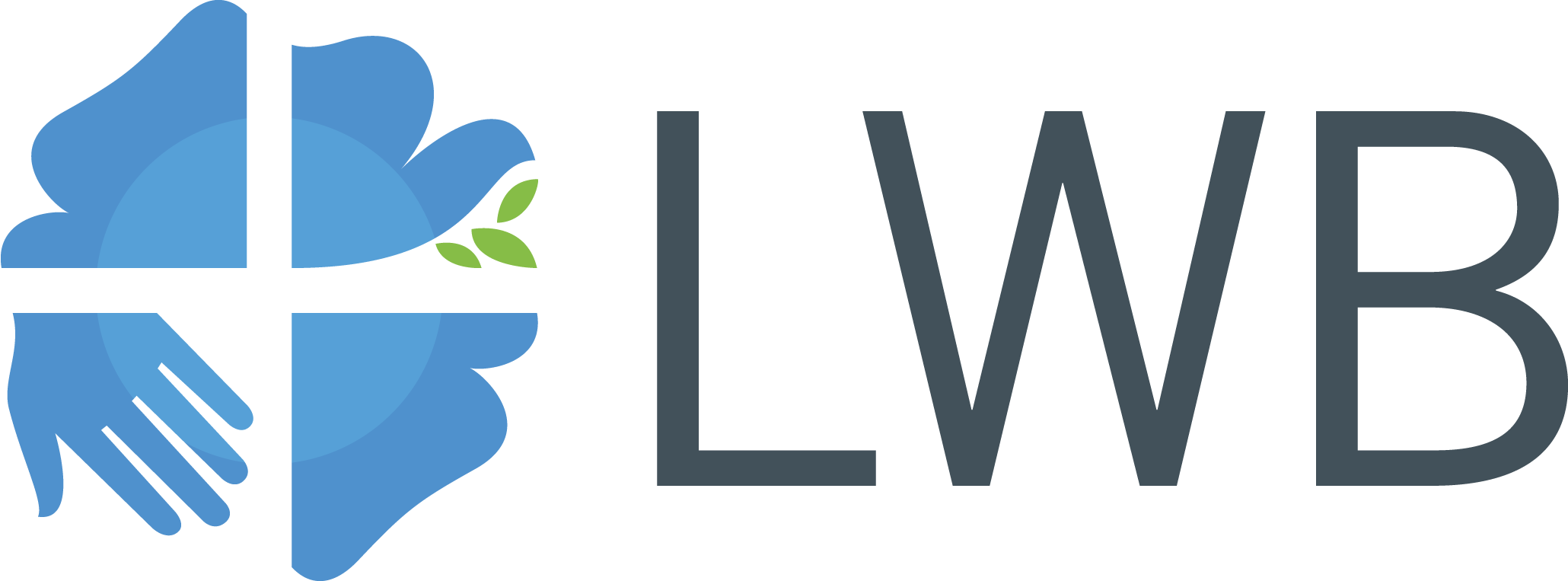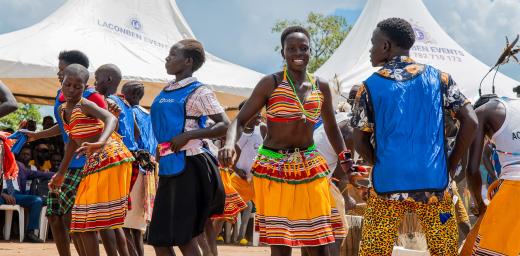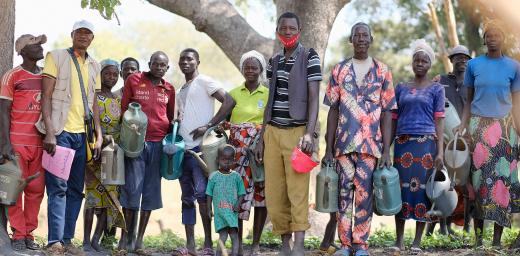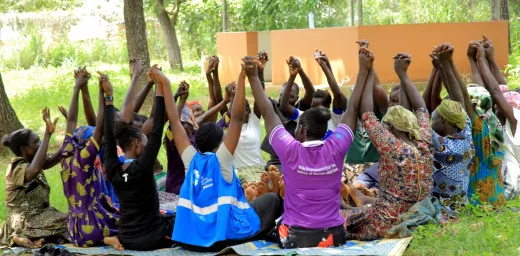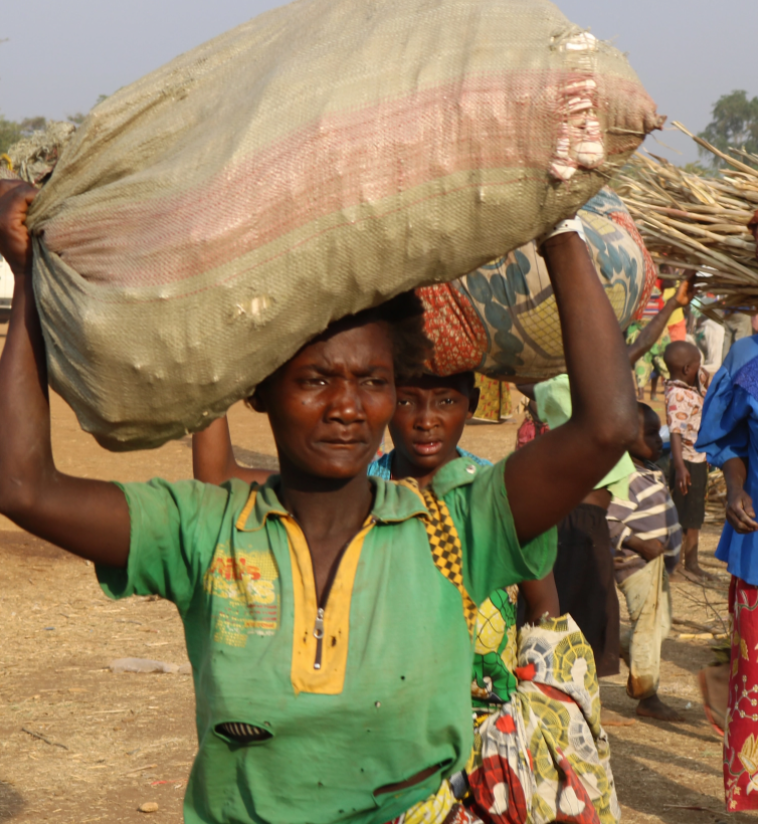
Uganda
Country Program
As the first cases of the coronavirus have been detected in Uganda, there is also the first confirmed case of COVID-19 in Adjumani, a settlement in Northern Uganda that is home to 235,000 people and 210,000 refugees.
COVID-19 update
As the person had no overseas travel and was in contact with the refugee settlement quite frequently. This confirms that this virus knows no borders and has reached very remote areas. The proximity to large refugee settlements is extremely concerning. LWF engages with local authorities and working groups to stay informed and coordinate the response.
For the time being, all efforts concentrate on awareness-raising and improving hygiene. LWF sensitized 11,398 people in Palorinya refugee settlement COVID-19 spread and preventive measures using the Ministry of Health developed Information Education and Communication material. Community-based facilitators are conducting home-to-home awareness-raising on COVID-19. Additional handwashing facilities are installed at the base camp.
LWF plans to continue awareness-raising through road drives and house-to-house campaigns, as well as radio shows and radio messages. The team is checking and repairing all hand pumps in the camp, and providing additional fuel for the hybrid water pumps.
Hygiene measures have been taken to protect the team in the LWF camp.
Funds are urgently needed for soap, hand-washing facilities, and sanitizer, as well as mobilizing water point managers who can oversee the proper distance at the water distribution stations.
South Sudanese Refugees
Conflict in South Sudan flared up again in July 2016, forcing civilians to flee to neighboring countries. As the conflict worsens and news of atrocities spread, thousands arrive every day in the refugee settlements in Northern Uganda. At peak times at the beginning of 2017, the reception centers saw between 3,000 and 6,000 new arrivals per day. At the beginning of August 2017, Uganda is hosting more than one million refugees.
The LWF receives refugees at Elegu and Lefori collection centers close to the border with South Sudan, where it has built temporary shelters to accommodate new arrivals awaiting registration and transportation. LWF maintains water and hygiene at the collection centers and provides soap and sanitary materials to all households and to women, and dignity kits for women and girls. Special attention is given to people with special needs including unaccompanied minors, separated children, people with disabilities, and victims of sexual and gender-based violence.
While UNHCR transports most of the refugees at the Uganda - South Sudan border, some trek to the transit routes and collection centers. Hungry and tired, needy South Sudanese refugees are received, screened, and given hot meals by LWF, in partnership with other humanitarian organizations.
Refugees are received in the camps of Adjumani and Palorinya. LWF provides core relief items, such as blankets, basins, plastic sheets, clothes, sanitary pads, and soap to the refugees as they wait to be given a designated land plots by the Ugandan Office of the Prime minister. In Palorinya settlement, LWF provides water and sanitation services, protection, construction/ shelter, and community services to the refugees.
Refugees from the Democratic Republic of Congo
On 20 May 2015, LWF Uganda began scaling up efforts to support an influx of refugees fleeing violence in the DR Congo by providing hot meals, building temporary shelters, setting up a short-term health post, and putting plans in place to protect children and women from sexual violence. LWF is assisting the 160,000 Congolese refugees in the Rwamwanja refugee camp in Eastern Uganda with livelihoods, peace-building, and protection services. A special focus lies on preventing and supporting the survivors of sexual and gender-based violence, people living with HIV, and people living with disabilities.
Human rights and sustainable development in Uganda
Recovering from a history of civil war, dictatorship, and human rights abuses, Uganda is working to transition from conflict and instability to a new season of peace and prosperity.
In the last ten years, Uganda has experienced annual economic growth of 7-8% percent. However, the country remains one of the poorest in the world with almost a quarter of its population at the national poverty line.
Uganda is prone to droughts, epidemics, famine, floods, and insecurity. In addition, HIV rates in Uganda have started to climb following significant successes in controlling the spread of the infection.
The LWF works through a variety of programs to help Ugandans – both young and old – achieve their rights and develop sustainably. We help local grassroots and district structures to organize and manage areas such as livelihoods, water and sanitation, health, and environmental management.
We assist families to engage in meaningful income-generating activities. As a result, many have bought assets such as bicycles, built houses, and taken their children to school. In addition, children achieve their right to education and to attend school – a fulfillment of the district, national, and millennium development goals.
We support agricultural production through farmer field schools and have seen an increase in the production of crops such as groundnuts, beans, and soya.
Update: 24.11.2020
South Sudan crisis
Help us make a difference in the lives of people in need in Uganda and other places throughout the world.
